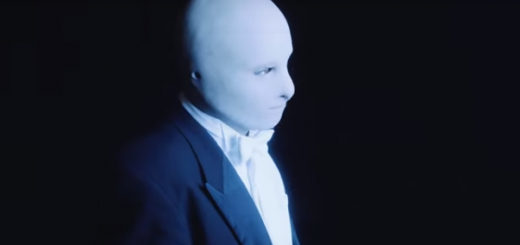My Old Man by Mac DeMarco Lyrics Meaning – Exploring Self-Reflection and Legacy in Indie Music
Lyrics
Who do you see?
Someone familiar
But surely not me
For he can’t be me
Look how old and cold and tired and lonely he’s become
Not until you see
There’s a price tag hanging off of having all that fun
Uh oh, looks like
I’m seeing more of my old man in me
Oh no, looks like
I’m seeing more of my old man in me
Walk on the outside
Holding her hand
Someone familiar
Her and her man
But it just can’t be
Look at all the steps that brought you where you are today
Not until you see
As a heart grows stronger, sometimes love is pushed away
Uh oh, looks like
I’m seeing more of my old man in me
Oh no, looks like
I’m seeing more of my old man in me
Uh oh, looks like
I’m seeing more of my old man in me
Oh no, looks like
I’m seeing more of my old man in me
Among the thrumming strings and laconic melodies characteristic of Mac DeMarco’s style, ‘My Old Man’ surfaces as a poignant exploration of self-identification and generational reflection. The track, garnished with DeMarco’s signature simplicity, unveils layers of introspection that betray the more complex and contemplative fabrics of his songwriting. DeMarco’s ‘My Old Man’ is more than a song; it’s an introspective journey into the inevitable mirroring of past generations.
With a delicate blend of nostalgia and existential musings, the track weaves through the tender realization of one’s morphing into the silhouette of their progenitor. The deft lyrics, in DeMarco’s soft and often-melancholic vocals, serve as an elegy for youth and a reckoning with the inexorable passage of time. Here, we will peel back the layers of ‘My Old Man,’ seeking to understand the nuanced interplay of its lyrics and the broader themes that pervade this introspective anthem.
Mirror Image: Confronting the Inevitable Reflection
DeMarco confronts his aging reflection, a primal scene that occasionally haunts the best of us. The mirror serves as a poignant metaphor for self-scrutiny where the protagonist faces not themselves, but a version that seems foreign—a visage hardened by experiences and shaped by the very life they’ve led. It is in this intimate meeting with oneself that he grapples with the recognition of the traits inherited from the ‘old man’—a term both endearing and loaded with baggage.
It’s no coincidence that the reflection is described as ‘old and cold and tired and lonely.’ This framing is a deliberate choice to communicate a weariness of life, an understanding of the sacrifices made for the ‘fun’ that carries an undisclosed cost. Here, DeMarco lays bare a universal truth about aging and inheritance of character—suggesting that one’s identity may not just be a personal construct but also an amalgamation of ancestral legacies.
The Price of Living: Interpreting the Cost of Joy
DeMarco doesn’t shy away from presenting a transactional view of happiness and its pitfalls. The ‘price tag hanging off’ is a potent image, suggesting that our pleasures and escapades come at a cost, usually revealed to us in hindsight. The notion is clear and contemplative: life’s joyous moments are not without a psychological expense, an invoice presented as we inherit our parental shadows.
These lines resonate with a generation all too familiar with the pangs of consequence, bound by the tangled threads of choice and outcome. DeMarco’s observation is a sobering reminder that the pursuit of happiness is often a double-edged sword, carving lines of joy as well as those of regret upon our countenance.
Generational Echoes: The Song’s Hidden Layers of Legacy
Nested within the verses of ‘My Old Man’ lies the embedded truth of generational repetition. It’s the cycle of seeing oneself in a parent and, in turn, becoming a mirror for them. There’s an acceptance of a shared narrative, a life script that follows a familiar pattern. DeMarco’s invocation of familial habits, a historical repetition of character, is subtle yet glaringly profound—a hidden meaning that resonates deeply with listeners.
This reflection on heritage isn’t singular to DeMarco; it’s a chord that strikes a universal note. The inescapable cycle of bearing one’s lineage isn’t merely physical; it carries the emotional and philosophical stance of our forebearers. The song’s pas de deux between acknowledging one’s unique individuality and accepting the prevalent family essence is a delicate one that DeMarco manages to capture with graceful lyricism.
A Love Grown Strong: The Paradox of Intimacy and Distance
DeMarco brings to light the paradox of love’s tenacity and its resultant estrangement. In a relationship dynamic, be it romantic or filial, the fortification of one’s heart often leads to a certain distancing, a protective measure to shield from the pains of love. He speaks to the evolution of relationships, where with growing strength, emotional defenses surge, and the pull away from love becomes a natural refrain.
This bittersweet sentiment rings particularly true as the song progresses. It suggests that as we navigate life alongside those closest to us, the natural inclination to push away or hold at arm’s length may be synonymous with love’s own depth. It’s a nuanced observation of the loving human condition, wrapped in gentle yet stoic acknowledgement.
Echoes in the Silence: Memorable Lines That Haunt and Heal
Songs like ‘My Old Man’ thrive on instrumental simplicity, allowing the words to cut through with profound clarity. Phrases like ‘Uh oh, looks like,’ followed by the stark realization, ‘I’m seeing more of my old man in me,’ ring through the listener’s mind with the weight of an uncomfortable truth. They echo in the moments of quietness, during the late nights of soul-searching, or in the unlooked-for glimpses in the mirror.
These are the lines that linger long after the guitar has been silenced and the record stops spinning. They aren’t just heard; they are felt, engrained within us, comforting and disconcerting all at once. DeMarco has a talent for building such hauntingly memorable lines that not only define the song but also act as passage ways to self-examination and profound, albeit reluctant, acceptance.








